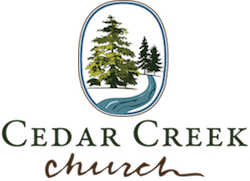Introducing MooLoos
Picture a grassy hillside dotted with black and white cows, peacefully grazing as the sun stripes the landscape. For most of us, scenes like this help us to slow down and marvel at the beauty of God's creation. But for those of us who have lived the rural life, we know this bucolic scene won't smell as lovely as it looks.
I lived for more than 16 years just outside of Greeley, Colorado, a rugged town known for its 100-year-old rodeo and, unfortunately, the odor of its feedlots. While the smell has improved in recent decades, Denver residents to the south still hold to the adage, "If it smells like Greeley, it's gonna snow." In other words, if the winds blow Greeley's feedlot odors into the big city, snows are likely on the way.
The aroma is actually more than an irritant: Cow urine contributes to greenhouse gas emissions as well as soil and water contamination, a growing problem scientists refer to as the "climate killer conundrum." According to Lindsay Matthews, an animal behavioral scientist at New Zealand's University of Auckland, urine mixed with feces becomes ammonia, which creates acid rain, the airborne pollutant nitrous oxide, and other environmental issues. And cows pee a lot, Matthews says: about eight gallons of urine each day.
But Matthews and her team at an indoor research lab in Dummerstorf, Germany, may have landed on an answer: "MooLoos." In an article published this week in Current Biology, Matthews and team report that cows can be potty trained much like human toddlers. In just 15 days, researchers taught young calves to push open a gate and urinate in a special pen.
The scientists used molasses treats to coax the calves, who were encouraged to roam about an indoor facility and come to the pen when they needed to urinate. In the two-week test period, 11 out of 16 cows potty trained successfully. Is it scalable? That's the key question moving forward. But what an amusing image: green fields dotted with grazing cows ... and MooLoos designed to keep the odor at bay.
The idea arose from a joking question about livestock waste on a New Zealand radio talk show, and scientists took it seriously enough to turn the jest into an academic study. Rather than shrugging off an idea that sounds ludicrous, researchers stepped in to test a theory and discover something new.
While we may not be scientists in Germany pondering the impact of cow urine, we are all human beings in communities and on a planet that needs our help. What problems do you see around you that remain unsolved or unaddressed? If you allow yourself to dream a little, is it possible the Holy Spirit will lead you to solutions as ridiculous-sounding as bovine outhouses?
We are called to be Christ's inspiration in the world, however that may look. Consider Colossians 3:23-24:
Whatever you do, work at it with all your heart, as working for the Lord, not for human masters, since you know that you will receive an inheritance from the Lord as a reward. It is the Lord Christ you are serving.
Let's be a church that dreams rather than sleeps, that risks rather than watching warily. Even if it leads us to loos in a field.
God Bless,
Jennie

